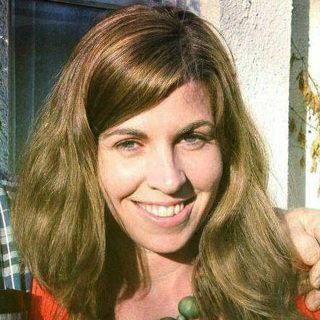Mariah Kari calls music "an incentive, something to focus on and work on at a time when I didn't really have anything else." Mel Aman / DenverMind Media
A recent graduate from high school in Denver, Mariah Kari makes the case for listening to -- and learning from -- the city's youth.
Mariah Kari was among a group of eight exceptional young people to receive Youth On Record's 2016 Real Rock Star Award, which acknowledges excellence, creativity, commitment and achievement among young people in Denver, during YOR's annual gala on Sept. 29. As they addressed a capacity crowd that included local business and philanthropic leaders, artists and educators, Kari and her fellow honorees reminded the audience that young people have powerful voices worth hearing.
Like thousands of young people in Denver, Kari fits a few categories: "underserved," "at risk," "under-represented." Now 18, she has spent years in the foster system; she first encountered Youth On Record while living in a residential treatment center. She now writes and produces songs and co-teachers with her mentor Kalyn Heffernan, of Wheelchair Sports Camp. Music has allowed Kari to push against odds and flourish creatively. This spring, she graduated high school and is now beginning the process of applying to college.
Confluence Denver: Why is it important to have an outlet, especially for young people?
Mariah Kari: If you don't, you'll start bottling things up and bad things happen. If you don't express yourself, you just act like everything's okay, but eventually something's going to tip you off and you won't express it in a positive way, or any way at all. When I was in the facility, I didn't have anything else to look forward to. It makes it hard to focus on your long-term goal. Music gave me an incentive, something to focus on and work on at a time when I didn't really have anything else. I put 100 percent into it.
CD: Do adults listen to young people?
MK: Some adults listen, some adults don't. There's always that one person who treats you like a human being and that makes a huge difference. A lot judge you, especially when you're in a situation like the one I've been in. They read your file, and that's how they perceive you. People have spoken for me my whole life -- in courts, in meetings. I was always too young to say anything. It's really weird when people go into meetings to talk about you, and you're not invited to the meetings. Like, 'You didn't even invite me to the meeting about myself.'
CD: What do you we get wrong about youth?
MK: You have to build trust with us. If you're asking us to tell you our whole life story, you have to tell us something, too. And adults think that we all think we're invincible. That's not really true. I think I'm going to break every day. But that's why I go out and do stuff every day. It's not that we think we're invincible, it's that we know we're not.
CD: Why is it important to know and listen to people who are unlike you?
MK: Listening and communication are key to everything. I don't want to change people's minds; I want them to have a more open experience. We would definitely benefit from having a more open world. A more tolerant world. Not everyone is the same. If you want that, you could just go talk in the mirror. But if you want to challenge your mind, it's more fun to have good conversations and get a different perspective.
Enjoy this story?
Sign up for free solutions-based reporting in your inbox each week.

Read more articles by Laura Bond.
A former editor and staff writer with
Westword, Laura Bond has written for
Rolling Stone,
USAA and
Spin, among others. She is the principal of
Laura Bond, Ink., a content and communications strategy firm that serves nonprofits across metro Denver.